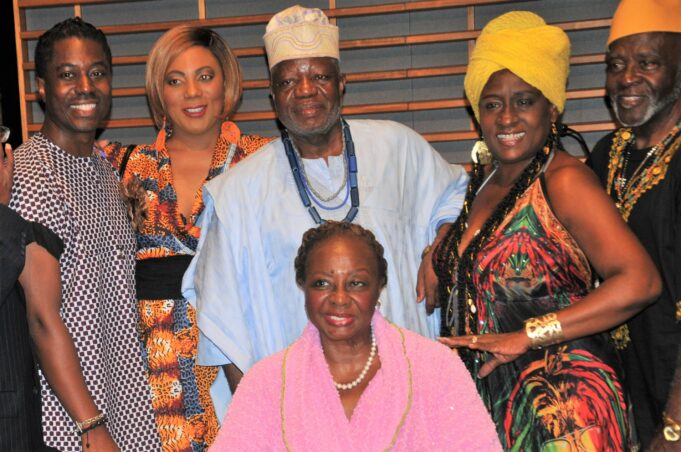Culture and tradition on display at African Festival of the Arts in Chicago
CHICAGO—Summer may be over but in the Windy City there were plenty of cultural events that took place. After a two-year pandemic hiatus, the city’s largest celebration of global Black culture held every Labor Day weekend in Chicago’s historic Washington Park reemerged with a short, but powerful message from the Honorable Minister Louis Farrakhan to create a new cultural tradition rooted in love.
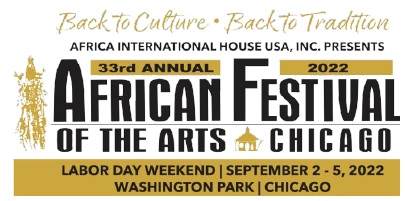
The organizers of Africa International House named Min. Farrakhan the Honorary Grand Baba (Father) and Illinois State Senator Mattie Hunter (D-Chicago) the Honorary Grand Yeye (Mother) of the 33rd Annual African Festival of the Arts during the Gala kick off celebration.
It’s a title of honor given each year to a different man and woman in recognition of their commitment to the community.
“I am honored that you have chosen me as the honorary Grand Baba of such a magnificent expression of African love,” said the Minister via a short, pre-recorded video presentation to the gala attendees. “Africa and we have suffered for the last 400 years and every avenue of division that they could find among us to enhance, they have done that to keep us divided,” the Minister added.
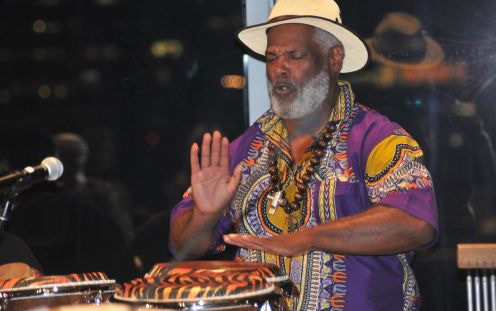
“This 33rd Annual African Festival of the Arts and culture, let it be that festival that promoted African love with African art; African love with African culture; Africa, the home of the origin of all humanity,” he said. “Africa must rise and let our art and culture be the means by which we rise, unite and create a future for all the children of Africa no matter where they’re found on the Earth.”
Regular Festival attendees were pleased that Min. Farrakhan was this year’s Grand Baba.
“Certainly, he is the Grand Baba; he is the original mindset that has pushed us to where we are now,” said Eugene Dillanado,publisher of Black Page International Chicago.
“Min. Farrakhan being selected as the Grand Baba is the apex of what Black African culture should be about. He’s a man of God, he’s a man of culture and he’s a man after his own people’s heart. He deserves it 100 percent,” said Minister Rahim Chesed Aton, founder of the Temple of Mercy Association.
“I think it’s phenomenal. It’s well deserved. Min. Farrakhan has been putting in work for the ages and it’s time we pay our respects to that dear brother on the highest level,” said Tio Hardiman, president of Violence Interrupters.
Organized by Patrick Saingbey-Woodtor, the festival was initially created to bring attention to Window to Africa and other businesses in Harper Court located in Chicago’s Hyde Park neighborhood. It has since grown into an annual weekend celebration that draws thousands from across the country with live music, fine art, food and more.
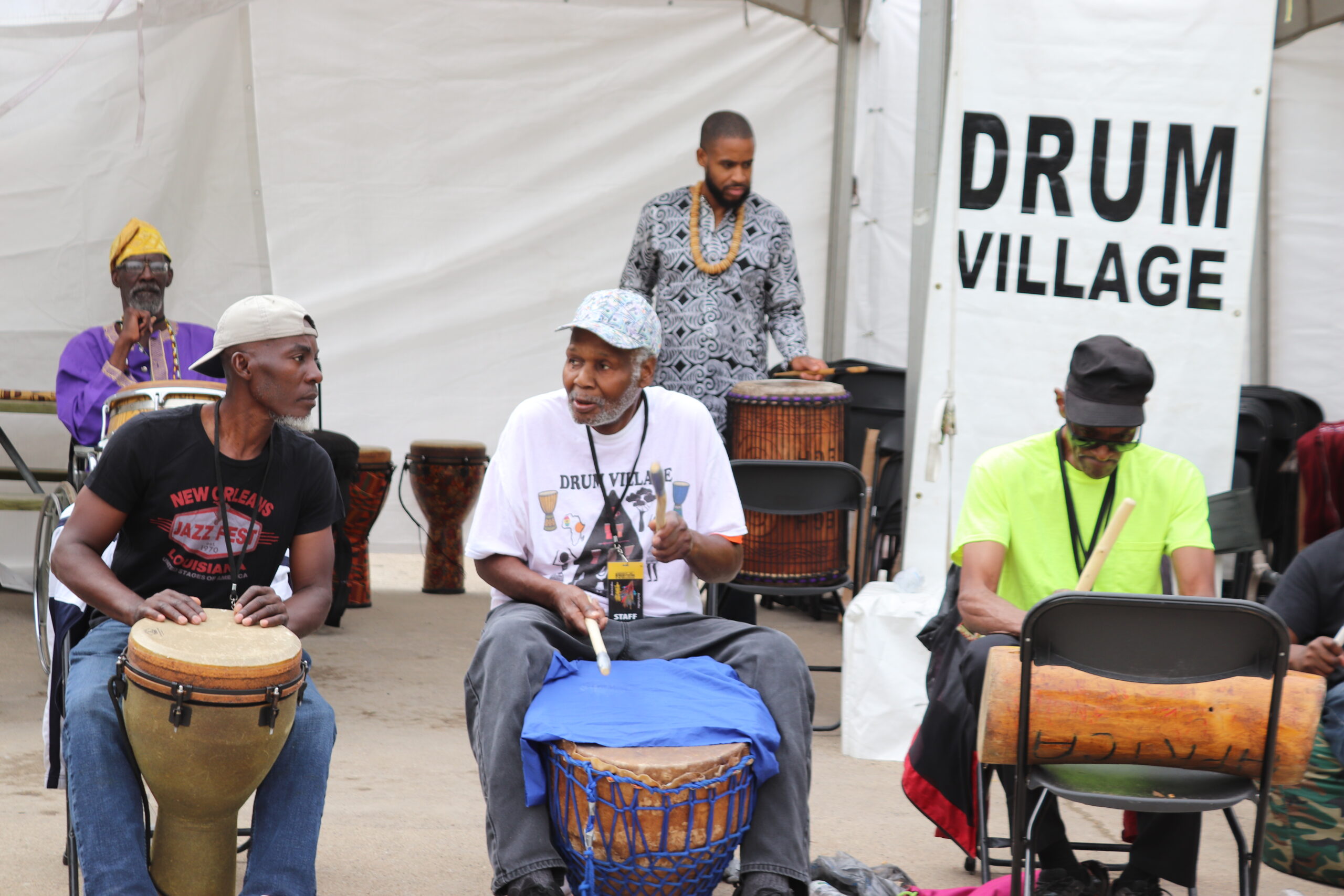
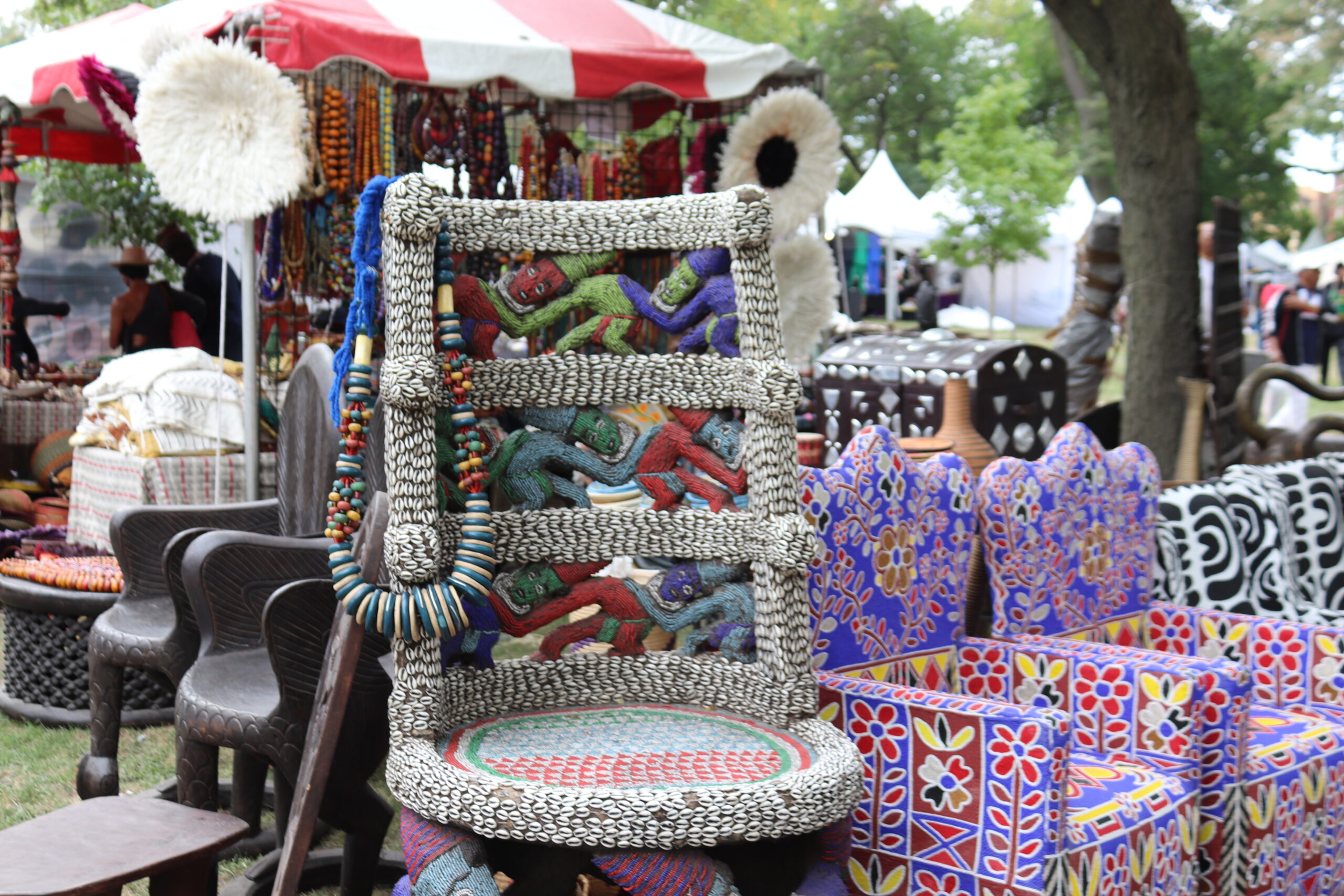
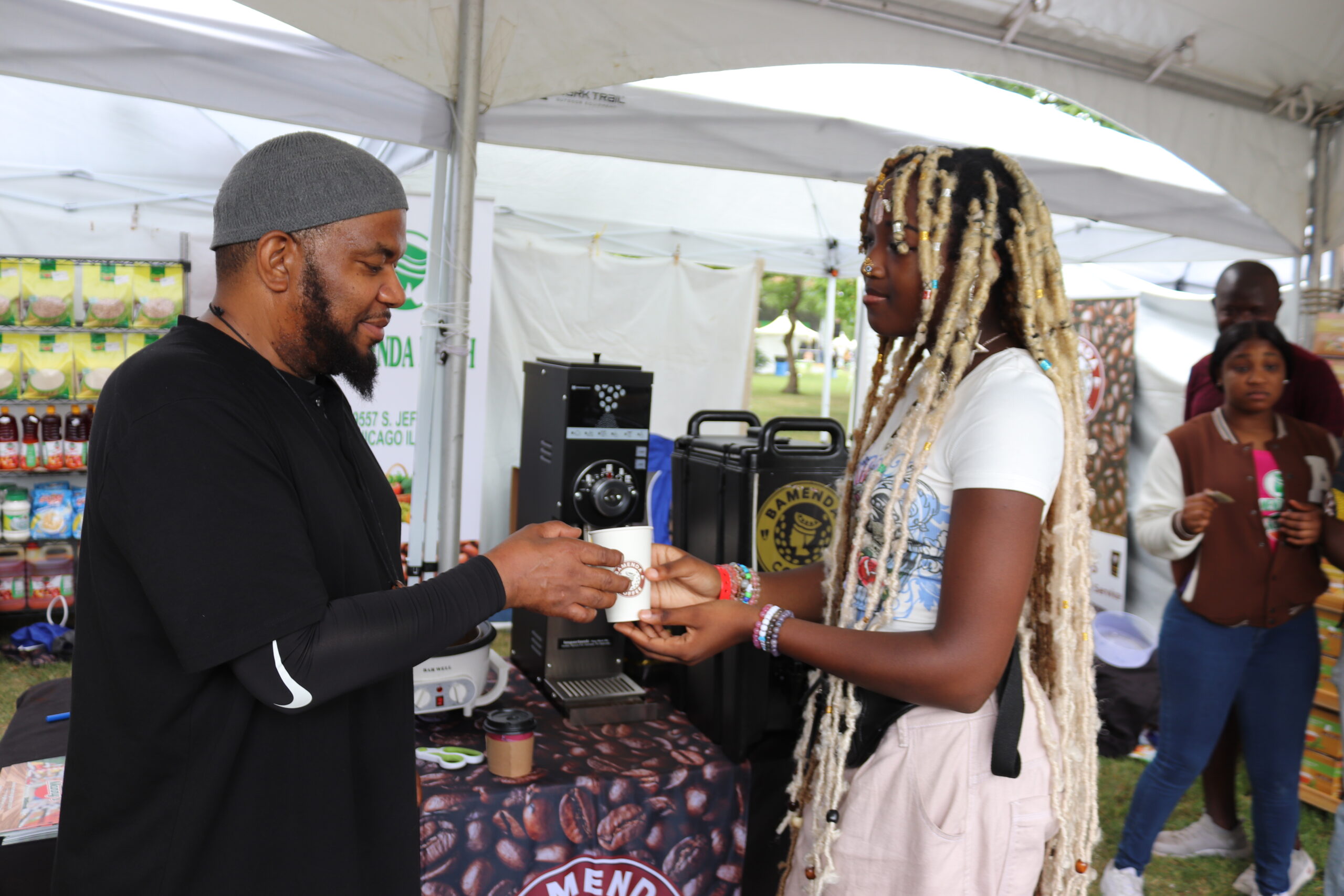
Under the theme “Back to Culture. Back to Tradition!” attendees were transported across the Diaspora with vibrant drumming, museum quality and collectible artifacts, colorful and rich handwoven fabric and textile September 2-5. In addition, there were programs and interactive spaces, including: Drum & Afro-folk Village, Children and Family, African Heritage, African Spirituality, Wellness (Health) Village, Books and Authors, Fine Art, Film and Video, Food Court, Seniors and Quilting, and the African Marketplace.
“Some vendors have been part of the festival since the beginning,” explained Saingbey-Woodtor. “It’s grown to the point that it’s become not just a local, regional, or national event, but international. We have people coming from South America, Africa and many other places,” Saingbey-Woodtor said. “There are vendors that come here from Africa and stay here for the summer just to sell their artifacts at the festival.”
The mission of Africa International House (AIH) is to expose and educate people to the individual works and collective contributions of African cultures. The most prominent expression of this mission is felt through the African Festival of the Arts.












